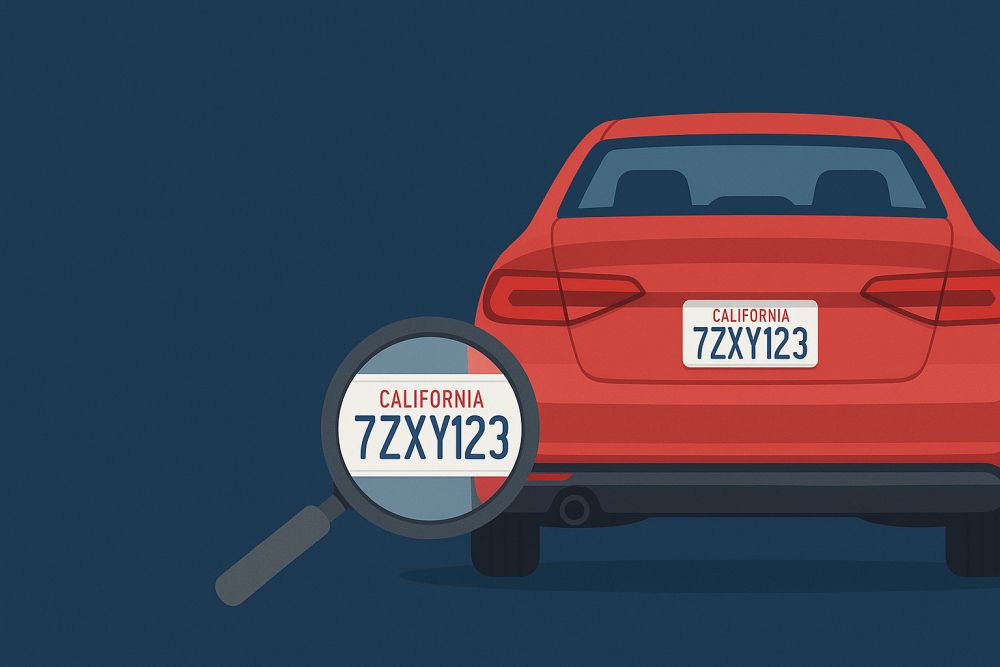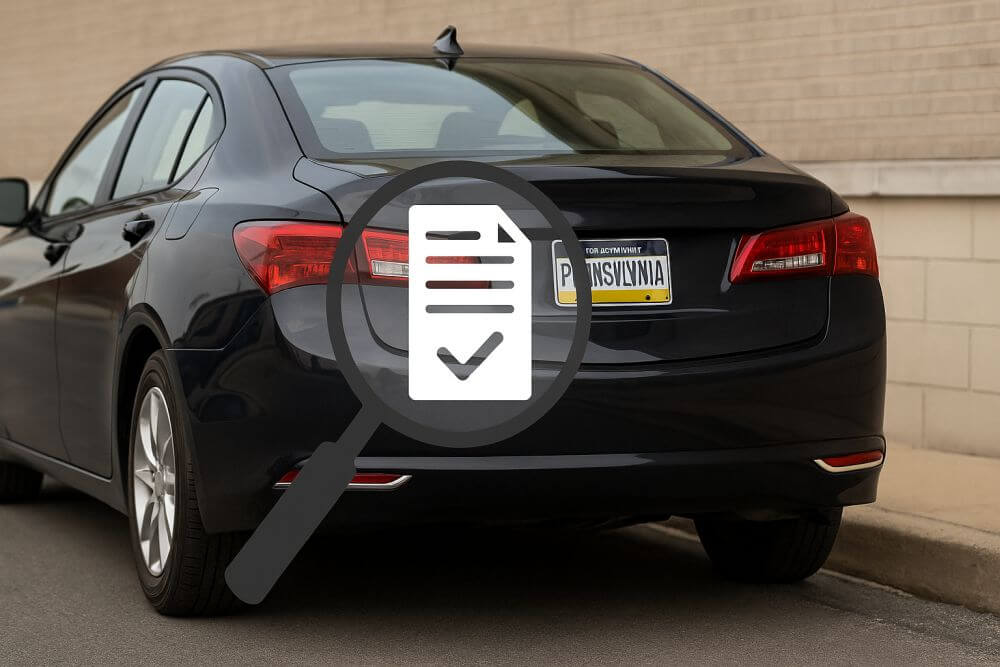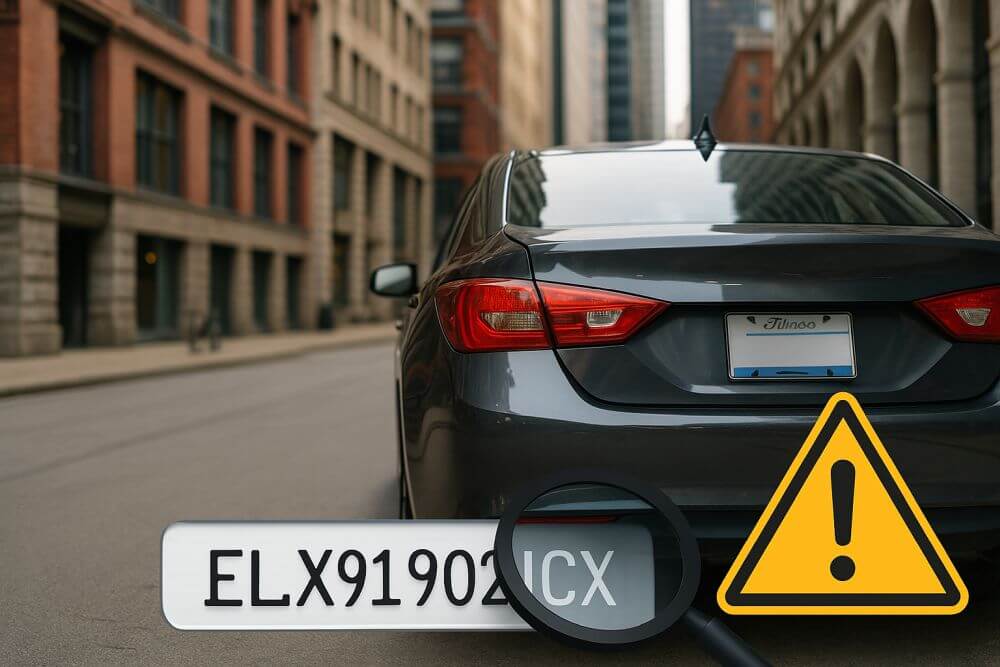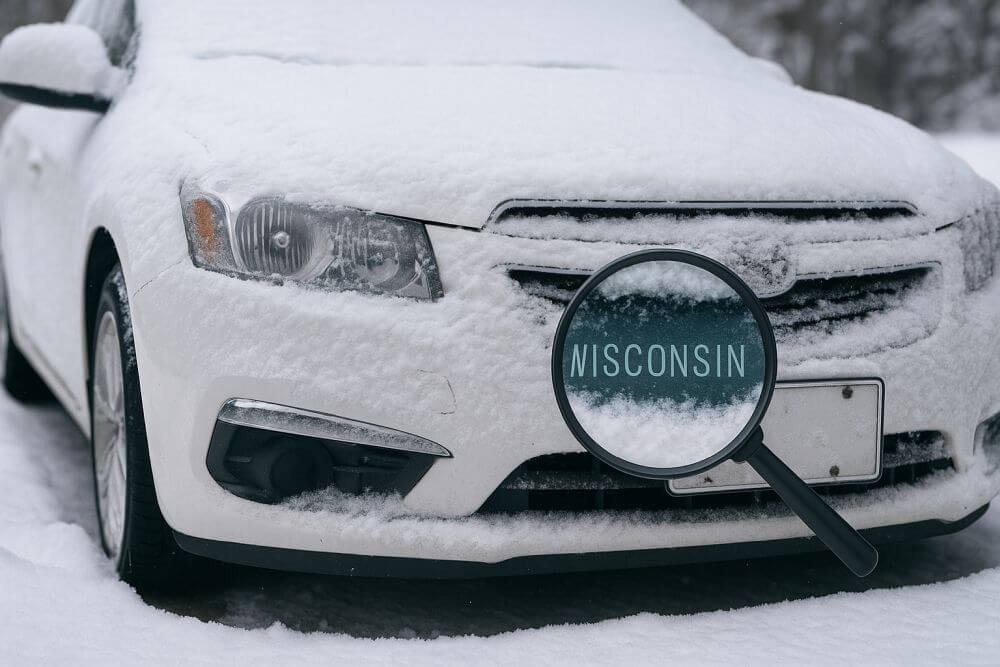When buying a used car in California, having full transparency about the vehicle’s history is not just important — it’s essential. One key aspect of this process involves verifying the current or past ownership of the vehicle. While a Vehicle Identification Number (VIN) lookup provides extensive details about a car’s past, sometimes additional verification through a license plate number lookup is needed to ensure you’re dealing with the legitimate owner.

license plate owner lookup California
However, finding the owner of a car using its plate number in California is not straightforward. The state has strict privacy laws designed to protect residents’ personal information, which can make accessing ownership records challenging. That said, there are legal and practical ways to approach this process, especially when you’re trying to avoid fraud or confirm that the seller truly owns the vehicle.
Below, we break down how to find vehicle ownership details using a license plate number in California, the legal limitations you need to know, and how VIN decoding fits into this research.
Can You Find a Car Owner by License Plate in California?
California enforces stringent privacy protections under the Driver’s Privacy Protection Act (DPPA) and state-specific laws. The Department of Motor Vehicles (DMV) does not openly release personal information tied to license plates to the public. This means you can’t simply type a plate number into a website and instantly see the owner’s name and address.
However, there are specific circumstances under which you may be able to access this information:
1️⃣ Requesting Information from the California DMV
The California DMV holds comprehensive vehicle registration records, including ownership details. While this information isn’t freely available to the public, you can request access if you have a valid and legally permissible reason. Examples include:
-
Involvement in a legal dispute related to the vehicle
-
Investigations into fraud or stolen vehicles
-
Certain insurance claims or recovery processes
To request this information, you generally need to submit an official form, such as the INF 70 Request for Record Information, and provide proper documentation supporting your need. Approval is not guaranteed and is strictly evaluated to protect privacy.
2️⃣ Using Third-Party Vehicle History Services
Some private companies and online services claim to offer license plate lookups. While these services can provide useful vehicle-related information (like past accidents, title status, and registration state), they often do not provide personal ownership details unless authorized by law.
When using third-party services, it’s critical to:
-
Ensure they comply with the DPPA and California privacy regulations
-
Avoid any service that promises unrestricted access to private information
-
Verify the legitimacy of the service — check reviews and confirm they are reputable
At VinCheckPro.com, for example, you can run a free vehicle history report using either a VIN or a license plate number (where permitted), giving you valuable insights into the vehicle’s background without compromising privacy.
3️⃣ Reporting to Law Enforcement
If you suspect a vehicle is stolen, abandoned, or involved in illegal activity, contacting local law enforcement is the most appropriate step. Police have legal access to ownership and registration records and can take further action if needed. You cannot directly obtain this information through police without a formal investigation or report.
Why Combine Plate Number Lookup with VIN Decoding?
While a license plate search can help confirm a vehicle’s registration status and potentially flag stolen or problematic cars, it usually does not provide a full picture of the car’s history. This is where VIN decoding plays a vital role.
A VIN (Vehicle Identification Number) is a unique 17-character code assigned to every vehicle, acting as its fingerprint. A VIN decoding can reveal:
-
Make, model, and year: Identify exact specifications.
-
Manufacturing details: Including engine type and plant location.
-
Accident history: Reports of past collisions or damage.
-
Title status: Whether the car has a clean title, salvage, rebuilt, or other designations.
-
Open recalls: Safety issues that may not have been addressed.
-
Theft records: Whether the car has ever been reported stolen.
By combining a license plate lookup (where available) and a VIN check, you can confirm that the vehicle’s story matches what the seller claims. This dual approach protects you from potential fraud, hidden damages, and misrepresented ownership, empowering you to make a more informed buying decision.
Practical Tips for California Used Car Buyers
✅ Always verify the seller’s identity and compare it with the name on the title. If there are discrepancies, proceed with caution.
✅ Ask to see the original title and registration. California law requires sellers to provide clear proof of ownership.
✅ Run a free vehicle history report using the VIN or plate number. Services like VinCheckPro.com offer comprehensive reports that can alert you to red flags.
✅ Consult legal or professional assistance if needed. If ownership or title issues arise, legal advice can help you navigate the situation safely.
Frequently Asked Questions (FAQs)
Can I legally find out who owns a car by its license plate in California?
No, in most cases you cannot legally access personal information (like the owner’s name or address) tied to a license plate in California due to privacy protections under the Driver’s Privacy Protection Act (DPPA) and state laws. Only certain entities, such as law enforcement or insurance investigators with valid reasons, can access this data.
What information can I get from a California license plate lookup?
A California license plate lookup can provide non-personal details such as the vehicle’s make, model, year, and registration status. It can also help confirm if the vehicle has been reported stolen, has a salvage title, or has been involved in major incidents. However, it will not reveal private ownership details.
What is the difference between a VIN check and a license plate lookup?
A VIN check decodes the 17-digit Vehicle Identification Number to provide detailed information about a car’s specifications, accident history, title status, recalls, and more. A license plate lookup, when allowed, mainly confirms registration details and basic vehicle information. For the most thorough insight, it’s best to use both.
Can I find the address of a car owner from the plate number?
No. Accessing an owner’s address from a license plate number is strictly prohibited for the public. This information is protected to prevent misuse, harassment, and identity theft.
How can I verify if the seller is the true owner of a car in California?
Ask to see the car’s title (also called the “pink slip”) and compare it with the seller’s ID. You should also check the vehicle’s registration documents. Running a VIN check and, if possible, a license plate lookup can help you verify if the information provided matches the official records.
Are third-party license plate lookup services reliable?
Many third-party services can provide useful vehicle history information but be cautious. Always choose reputable services that comply with privacy laws and clearly state what data they can legally provide. Avoid any service that promises full personal ownership details without legal justification.
Can I check if a car has been stolen using a plate number?
Yes, you can check if a car has been reported stolen by using the license plate number or VIN. Reporting to law enforcement or using a trusted vehicle history report service like VinCheckPro.com can help confirm the vehicle’s status.


